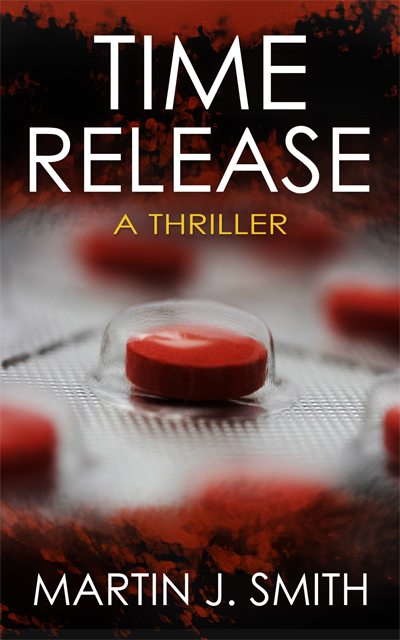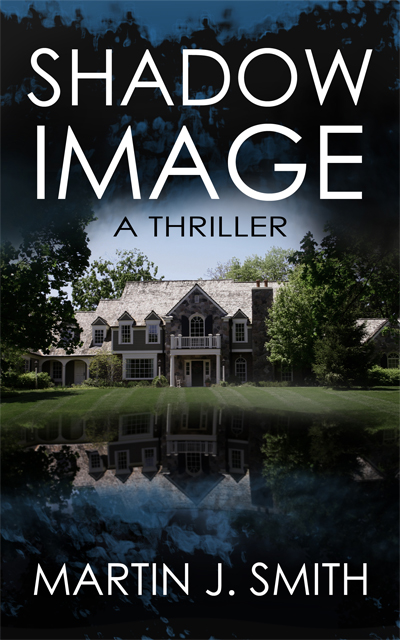Straw Men (28 page)

Teresa backed her car from its parking slot and pulled away. Christensen watched from his office window as the Mercedes bumped onto Meyran Avenue, headed for the afternoon rush on Forbes. Brenna was watching too, standing beside him, and she slipped her hand into his as soon as the car was out of sight.
“You can't expect more,” she said. “You did what you could.”
“I know.”
“We both did. For her. For Carmen. Bottom line: It was a win-win.”
Christensen touched the window pane, warmed by the spring sun. “That implies it's over for them. You know it's not, especially for her.”
“Kiger's already cleared her on the Milsevic shoot,” she said.
“But not the Tidwell thing. I don't see him backing off just because she owned up to what she did, do you? Not with his attitude toward drugs.”
Brenna wrapped him in her arms when he turned around. “She need a good defense attorney?”
Christensen shook his head. “Don't even go there.”
Brenna's green eyes had regained the same shine they had before the concussion, and her hair had long since covered the scars on her scalp. Beyond the obvious, though, Christensen sensed an awareness in her that was missing before, a subtle shift in priorities. She was working less, laughing more. Appreciating the things that, to him, always gave life a precious balance. The day before, on Sunday afternoon, she'd sat cross-legged for an hour on Taylor's bedroom floor, playing Crazy Eights with her son. The day before that, she'd joined Annie on the couch to watch
Homeward Bound
again, and they both cried when Shadow came home.
“Now what?” he said.
Brenna laid her head on his chest. “We move on.”
“How?”
“Together.”
Christensen wanted to believe. He wanted to forget the way things were. He wanted to trust the changes he'd seen since the day he'd nearly lost her in Panther Hollow. But could he? How long would this last?
“We've got visitors.” Brenna pointed through the window, at the silver Legend just then pulling into Teresa's parking slot one floor below. Christensen did a double-take. They'd driven to his office together, in the Explorer.
“Bren, who's driving your car?”
She shrugged, but with an enigmatic smile. The brake lights went off, and three doors popped open at the same time. The kids got out the near side, Annie from the front, Taylor from the back. From the driver's door stepped a striking young woman with a soft, round face. Her almond eyes were nearly hidden by a loose curtain of black hair, and a familiar camera bag was slung over one shoulder. With his first glimpse, Christensen felt an overpowering sense of
dèjá vu.
Molly? He blinked. No. Not Molly.
“Melissa,” he said.
“Your older daughter grew up since she was home last, didn't she?”
“It's ⦠The hair, the way she walks. I can't believe how much ⦠Is that Molly's old camera bag? She's⦔
Brenna squeezed his hand. “Her mother's child.”
“But it's, I don't ⦠It's the middle of the term. She's supposed to be at Penn State. I talked to her yesterday.”
“So did I.”
Christensen watched Melissa herd the younger kids across the parking lot toward the elevator down below. It took a moment for Brenna's comment to sink in.
“You talked to her?” he said.
“I called her.”
Brenna pulled away and stooped for her briefcase. She came up with a large manila envelope and handed it to him. He undid the clasp, tugged several papers halfway out, and flipped through an assortment of medical and legal documents.
“I don't understand,” he said.
“Our blood tests are still good.” She raised a hand to his cheek and touched it with her palm. “I don't want to postpone it again. I want to get married. It's right, Jim. I know that. I'm just sorry it took me so long to understand it.”
Christensen couldn't stop his first reaction. “Today?”
Brenna nodded. “If we make the county courthouse soon. The clerk down there owes me a favor. They usually don't do marriages after four, but she said she'd wait till five as long as we brought our own witness.”
Christensen pointed to the three figures below. “That's why Melissa's home?”
“I wanted all of us involved, everyone together.”
“Melissa was OK with it?”
Brenna rolled her eyes. “She's jazzed. Blew off her Monday classes and took the express bus home.”
Christensen pulled her to him, and they started to sway. Brenna sang softly in his ear:
And when at last I found you
If she finished the verse from the Beatles' “I Will,” Christensen didn't hear. He was lost in her dizzying scent and softness, right up until the office door burst open. They turned to see three startled faces, but Christensen couldn't stop. He held Brenna tight, dancing to their private tune until Annie's, “Oh, gross,” cracked them up.
Straw Men
is a complicated story conceived and written by an uncomplicated mind. Because of that, I relied on various people who were unfailingly generous with their time, insights, and expertise.
Former Los Angeles Police Lt. William T. Dumbauld of Los Alamitos, California, put me in touch with Capt. Bradley Merritt, chief investigator of the Internal Affairs Group of the LAPD. Both Dumbauld and Merritt helped me understand the role that internal affairs investigators play in a large metropolitan police department.
Criminal-defense attorney James Brott of Bailey & Brott of Orange, California, patiently explained the legal circumstances that in this book lead to the early release of the Scarecrow, Carmen DellaVecchio. Brott also helped me understand the possibilities and limits of court-ordered electronic monitoring. I bent reality a little to fit the needs of my fiction, but I hope Brott, as a fellow writer, will forgive me that indulgence.
I also want to acknowledge Dr. Elizabeth Loftus, whose research has for years raised fundamental and persistent questions about the reliability of eyewitness testimony. Her conclusions and opinions make many people involved in the criminal-justice system uncomfortable. And they should.
Susan Ginsburg, my literary agent, helped shape
Straw Men
from the beginning, and her insights helped this book and its predecessors reach their potential. She is a writer's dream. Hillary Cige, my first editor at Berkley, believed in me when Jim Christensen was still just an idea on paper. I'll always be grateful to her for that, as well as her contributions during the early stages of this book. The late-stage suggestions of Berkley Senior Editor Christine Zika greatly improved the final product. As usual, copyeditor Amy J. Schneider did an extraordinary job.
The members of my two writing groups have acted as midwives to all of my books, and their ideas and suggestions always improve my best efforts. Carroll Lachnit, in particular, offered helpful insights into the character of Teresa Harnett. While I was writing this book, Philip Reed, my “Dads Tour” road buddy, became a friend and much-needed sounding board. He once thanked me “for making this solitary pursuit a lot less lonely,” and I wish I could be as eloquent in thanking him.
The success of my previous two books,
Time Release
and
Shadow Image
, was due in large part to enthusiastic booksellers who recommended them to their customers. I hope
Straw Men
reaffirms their faith in my stories.
Ultimately, there'd be no joy in any of this without the love of my wife, Judy; our son, Parker; and our daughter, Lanie, to whom this book is dedicated.
â
Martin J. Smith
Palos Verdes Estates, California
MARTIN J. SMITH is a veteran journalist, author, and magazine editor who has won more than 50 newspaper and magazine awards. A former senior editor of the
Los Angeles Times Magazine
, he currently is editor-in-chief of
Orange Coast
magazine in Orange County, Calif. His first three crime novels were nominated for prestigious crime fiction awardsâthe Edgar, Barry, and Anthony. He also is the author of three nonfiction books, including
The Wild Duck Chase,
Poplorica: A Popular History of the Fads, Mavericks, Inventions, and Lore That Shaped Modern America
, and
Oops: 20 Life Lessons From the Fiascoes That Shaped America
.
Pittsburgh, 1986: The city is gripped in a panic as a maniac slips poison onto pharmacy shelves. All of the evidence has pointed to Ron Corbett, but shoddy policework let Corbett off the hook, left the crime unsolved.
Ten years later, it's happening again. This time, for the most personal of reasons, Detective Downing has made it his mission to see Corbett behind bars. He enlists the help of Jim Christensen, a psychologist who specializes in memory, to interview Corbett's son, now a young man with a painful past and problems of his own. Does the boy remember his father slipping a needle into pill containers? Has he blocked memories of a horrific crime spree enacted in his own house? As Christiansen explores the boy's memory and Downing grows more obsessive investigating the case, both men fear that the killings now may not be as random as they once thought, and that unlocking memories may draw them too close to a vicious predator.
The Underhill family has loomed over Pennsylvania politics for four generations as the most powerful in the state. Now, with their youngest son locked in a tight gubernatorial race, a simple accident threatens to derail the entire campaign. After Floss Underhill, the family matriarch, has been discovered alive after falling from a gazebo into a ravine, Brenna Kennedy gets brought in as a defense attorney to the family. The police don't seem to believe that her fall was an accident, however, and soon neither does Brenna.
Jim Christensen, a psychologist, memory expert, and Brenna's partner as they raise their children together, has been studying Floss Underhill for months in a group of Alzheimer's patients. Her mind ravaged by the disease, her body broken by the fall, Floss Underhill nevertheless knows something, and is trying to tell Christensen a family secret so explosive it could bring down an empire. To help bring it out of her, though, will make them powerful enemies, and bring both the truthâand the dangerâvery close to homeâ¦
The Disappeared Girl
Connect with us for information on new titles and authors from Diversion Books, free excerpts, special promotions, contests, and more:






